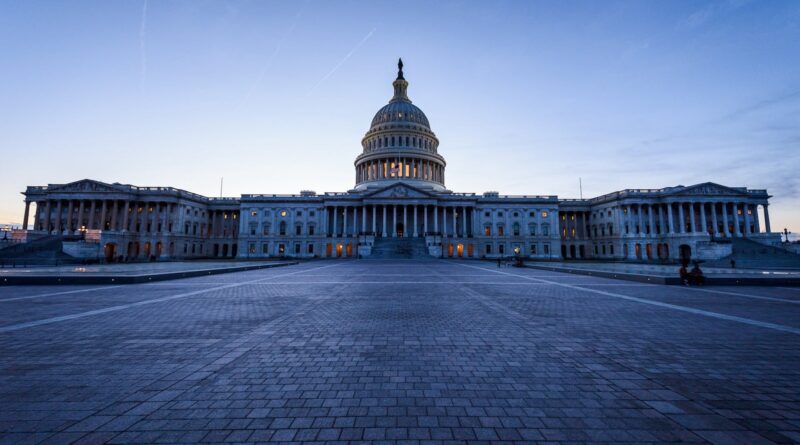How a looming government shutdown could affect holiday travel – The Points Guy
Once again, the U.S. is at risk of shutting down unless Congress funds the government ahead of next week’s looming deadline of Nov. 17.
The timing of a government shutdown would be particularly problematic, with one survey estimating nearly 117 million American adults will travel for Thanksgiving this year.
As of Wednesday, the Republican-led U.S. House of Representatives had not indicated a desire to fund the government through the end of the fiscal year via 12 appropriation bills nor through a continuing resolution beyond Nov. 17, per Reuters.
“A government shutdown could create complications at a peak travel period when travelers are counting on a system to perform without interruption or hassles,” said Tori Emerson Barnes, EVP of Public Affairs and Policy at the U.S. Travel Association. “It further threatens to cost the travel economy up to $140 million each day or nearly a billion dollars a week in lost spending, which would be an unacceptable outcome for an avoidable situation.”
If this happens, the federal government might fail to extend funding for certain government programs, potentially affecting travel to a national park, renewals of passports and Global Entry memberships, and more.
Here’s what you need to know — and what you can do now to minimize impacts on your plans — if this occurs.
Global Entry, TSA PreCheck and passport applications
Trusted Traveler programs, such as TSA PreCheck and Global Entry, are operated by U.S. Customs and Border Protection under the Department of Homeland Security. This means any pause in funding could curtail the ability to process applications.
As of November, current Global Entry application processing times are averaging four to six months per CBP; most TSA PreCheck applications are processed within three to five days when the government is operating normally.
Passport processing times have improved, with routine service expected within seven to 10 weeks (down from 10 to 13 weeks) and three to five weeks for expedited service (down from the previously quoted seven to nine weeks turnaround time).

Daily Newsletter
Reward your inbox with the TPG Daily newsletter
Join over 700,000 readers for breaking news, in-depth guides and exclusive deals from TPG’s experts
Potential funding issues aside, we recommend applying for and renewing your Trusted Traveler program memberships and U.S. passports as soon as they are eligible for renewal. The process can take time, and many countries will not allow you to enter with less than three to six months of validity remaining.
Beyond application processing times, a government funding delay could result in a shortage of Transportation Security Administration agents at airports, potentially increasing wait times for both the regular TSA screening line and TSA PreCheck lines at certain airports.
During the 2018-2019 government shutdown — which lasted 35 days and was the longest in history — flights were canceled due to staffing shortages among TSA agents and air traffic controllers. Additionally, some airports closed TSA security lines.
Plus, since the busiest travel day of the year is usually the Sunday after Thanksgiving, airports will be more crowded over the holidays.
National parks
As a federal agency under the Department of the Interior, the National Park Service is primarily funded by Congress.
With a lapse in funding, you could still enter some national parks as some roads, lookouts, trains and open-air memorials would likely still be accessible. However, essential services — such as visitor centers, restrooms and educational programs within the park — are run by NPS staff and would therefore be affected.
While visiting a park during this time would technically be free, a reduced staff would make the park less safe overall; the absence of park rangers would mean no monitoring or active search and rescue services.
Hotels within the parks run by contracted companies would remain open in theory.
In the past, third parties intervened to help keep national parks open in the face of a government shutdown, so these same groups could potentially step in to avoid park closures.
For example, in 2018, then-Arizona Gov. Doug Ducey signed an order to keep the Grand Canyon open via state revenue funding.
“The park gates stayed open, but nobody was working the toll booths to collect the usual $35 fee per car to get in the park,” per The Arizona Republic.
Therefore, states and private entities, including volunteer groups, could act to keep national parks open.
Ultimately, the decision to keep parks open during a shutdown lies in the hands of the U.S. president in office at the time of the shutdown.
Washington monuments and museums
Federally funded monuments and museums in Washington, D.C., would also be at risk. This includes the 17 Smithsonian museums, galleries and National Zoo, as well as the NPS-run memorials (such as the Lincoln Memorial and the National Mall), which are usually staffed by NPS rangers.
In the aforementioned government shutdown, the Smithsonian used funds to remain open through Jan. 1, 2019, leaving the museums closed for 24 days.
Bottom line
Hopefully, there won’t be government-related staffing shortages to close out the year. However, with the looming potential of that reality, it’s best to apply for or renew relevant government documents now if you need them to travel.
Related reading:




